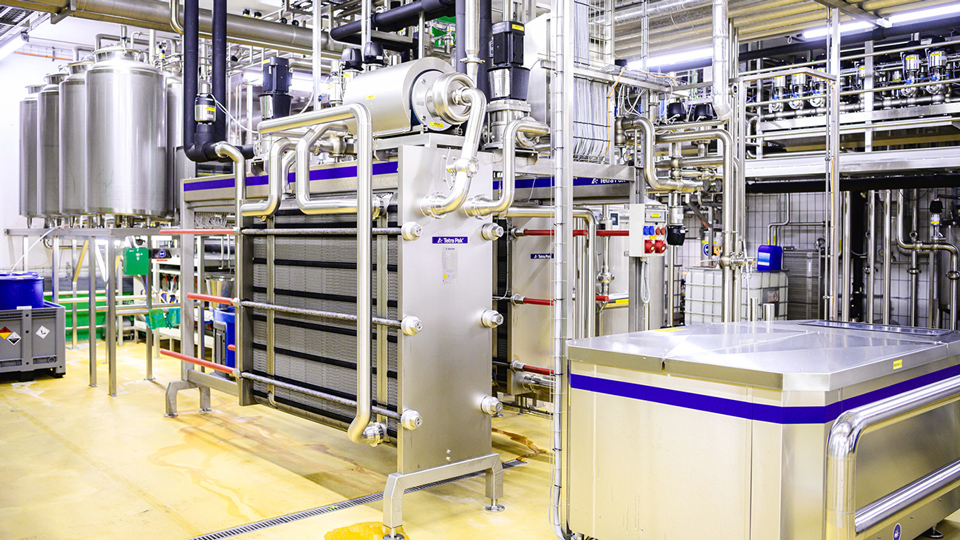The food industry is a very important contributor to the Swiss economy generating around CHF 35 billion, or 3% of its GDP and the manufacture of dairy products is a major contributor producing products which are very popular within the country and abroad. Züger Frischkäse AG is one of the country’s largest dairy manufacturers employing around 300 people at its main plant, turning approximately 2.8 million litres of milk into more than 150 different types of cream cheese products, such as cottage cheese, mozzarella and mascarpone.
The familiar challenges of achieving on-going sustainability, improving processing systems whilst meeting strict legal requirements, were the key factors helping Züger to explore and exploit technical advances. A particular focus was how could they optimise their CIP (Cleaning-In-Place) processes and this has resulted in them achieving considerable savings in water and cleaning media, thanks in part to Sensor Specialist BAUMER.
Baumer’s extensive range of sensors, encoders and measuring instruments includes the CombiLyz® conductivity sensor, a sensor which is designed to provide industry-leading precision, combined with impressive speed. Züger use the CombiLyz® sensor for the phase separation of food materials, water and cleaning agents, during the critical stage of CIP (Cleaning-in-Place). Thanks to the short reaction time of the temperature compensation, the CIP control system receives an exact measured value from the sensor - in just 15 seconds. This ensures that the control system can react quickly to the individual phases by actuating values quickly and precisely, something which is critical in helping to avoid the serious consequences of a faulty, or delayed measuring signal. For example, in worst cases the CIP tank can become flooded and the system goes down.

The Benefits…
Urs Koster, Divisional Manager for Technical Maintenance at Züger comments, “Whilst our priority was to avoid the consequences of a faulty or delayed measuring signal, we also wanted to optimise efficiency, which is why the quick and reliable reaction of the CombiLyz® sensor is so important”.
He confirmed, “The success of the optimisation of our CIP procedures is significant, now we consume up to 30% less in cleaning agents, up to 50% less disinfectant and up to 100,000 litres less water per day”.
The design of the CombiLyz® features a lid made of PEEK plastic as part of a one-piece hygienic design and an important factor is its ability to provide fast temperature compensation, as well as housing the inductive sensor elements for measuring the electric conductivity and the temperature sensor. The sensor tip has a low thermal mass and low thermal transition resistance, enabling the sensor to react very quickly, even at significant temperature fluctuations. Whilst sensors with two-part lids, where the temperature sensor is located underneath metal are a little faster, the frequent temperature fluctuations in these types of CIP applications put additional thermal strain on the transition between plastic and metal. The result is frequent cracks can occur, causing sensor failure and therefore unsafe for use of food processing applications.
Tel: +44 1793 783839 email: sales.uk@baumer.com www.baumer.com/gb/en/












Water Sector Talent Exodus Could Cripple The Sector
Well let´s do a little experiment. My last (10.4.25) half-yearly water/waste water bill from Severn Trent was £98.29. How much does not-for-profit Dŵr...